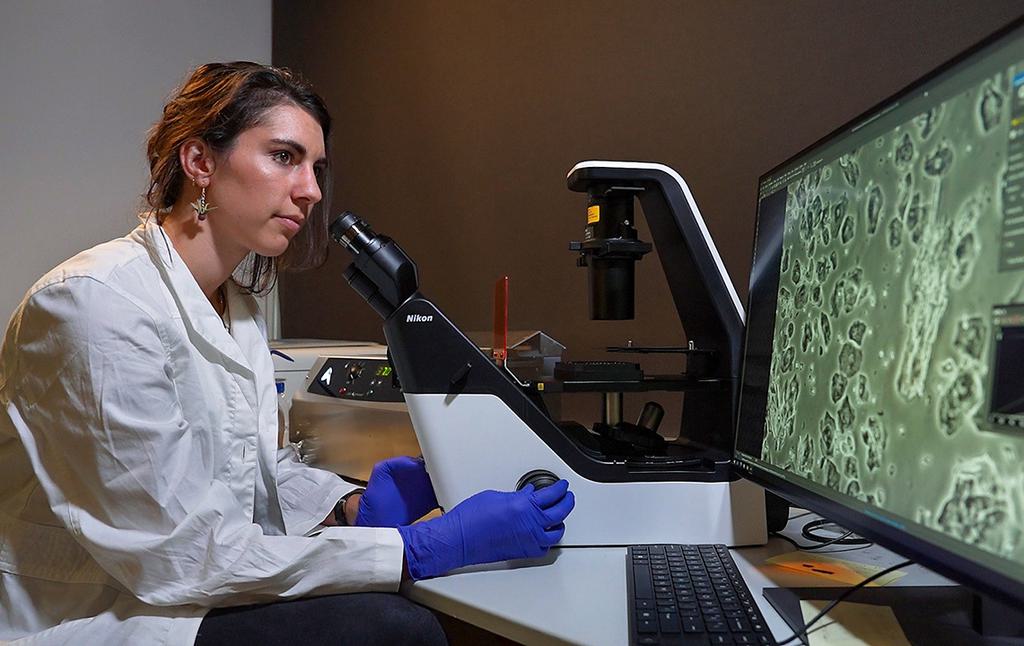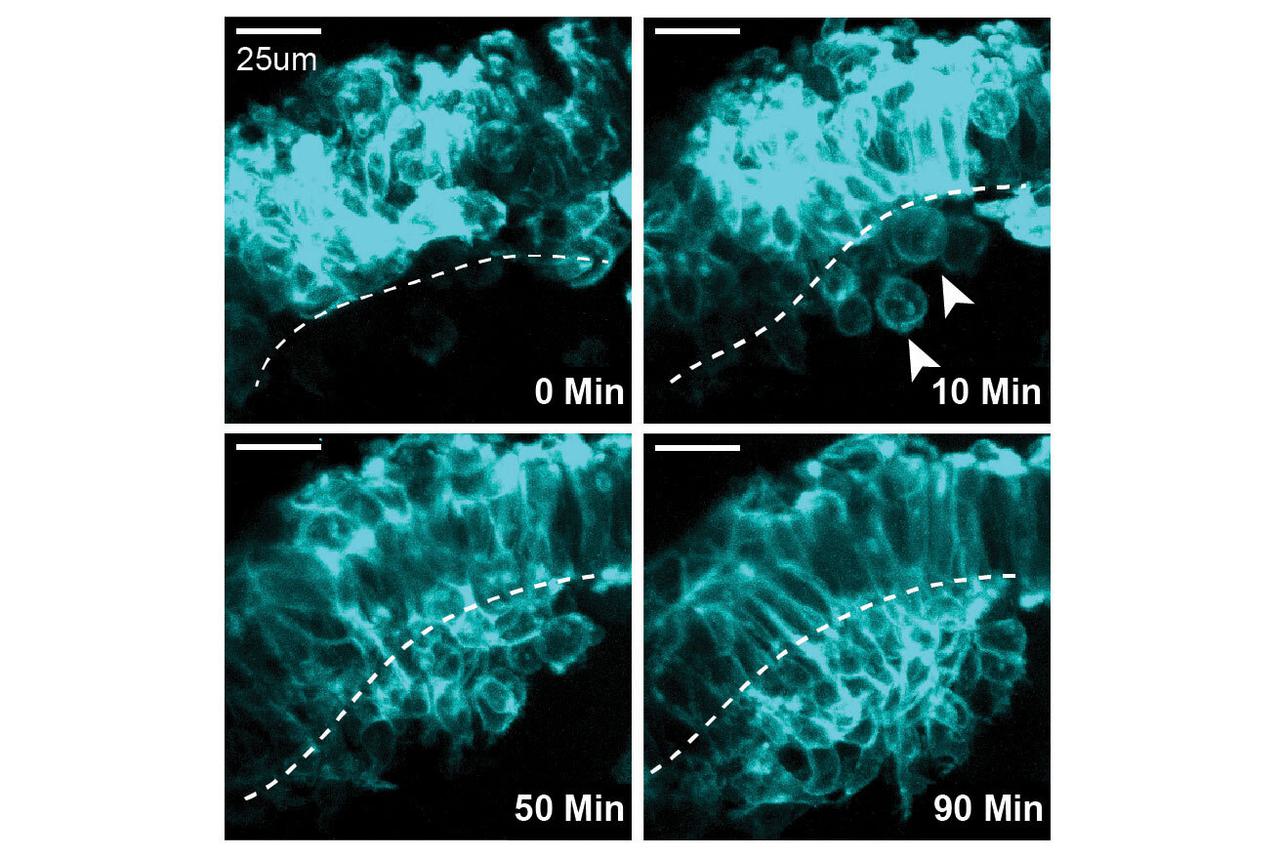Press Releases

30 April 2025
Stowers Investigator elected to the National Academy of Sciences
Jerry Workman, Ph.D., a pioneer in the field of gene regulation, receives one of the highest honors awarded to scientists worldwide.
Read Article
The Graduate School of the Stowers Institute for Medical Research
News
The fellowship is designed to help predoctoral researchers develop into independent scientists

Stowers Graduate School Predoctoral Researcher Anna Galligos
Predoctoral Researcher Anna Galligos from the Stowers Graduate School was recently awarded a coveted two-year F31 fellowship from the National Institutes of Health (NIH). Galligos’ project will investigate how the formation and function of ribosomes—molecular machines that manufacture proteins—affect mammalian oocytes as they age. Oocytes are immature eggs, not yet capable of being fertilized.
Part of the Ruth L. Kirschstein Predoctoral Individual National Research Service Award program, F31 fellowships are designed to help predoctoral researchers develop into independent scientists.
“I am honored to have received this award,” said Galligos. “It represents more than just financial support—it is a recognition of the potential impact of my research on the field of female fertility.”
Galligos joined the Stowers Graduate School Ph.D. program in 2021 and is conducting her thesis research in the lab of Stowers Investigator Jennifer Gerton, Ph.D. The Gerton Lab’s focus is on understanding the genome’s impact on organisms’ cells and tissues during development, reproduction, and cancer. Galligos will conduct the fellowship research with co-mentorship from Gerton and their collaborator Francesca Duncan, Ph.D., at Northwestern University.
Female reproduction starts before birth. Unlike male reproductive machinery that continuously produces sperm cells from puberty onward, female mammals are born with all the oocytes they will ever have. At around 35 years of age, women’s reproductive system starts to decline as does the quality of oocytes. As more women are delaying having children until later in life, oocyte aging poses problems that traditional fertility treatments can’t solve.
In addition to providing half the genome, an egg cell supplies an embryo with nearly all the proteins and RNA molecules needed to jumpstart development. Many of these RNAs are part of ribosomes, which are vital for making the early embryo’s proteins.
While the molecular mechanisms that cause oocytes to decline are not yet understood, Galligos is optimistic that her research will elucidate oocyte aging processes. “I hope that my project contributes to a deeper understanding of oocyte quality that informs future therapeutic developments,” said Galligos.
The Stowers Graduate School fosters excellence in research and education through encouragement, support, and generous funding for learning experiences. Galligos attended the six-week Marine Biological Laboratory Frontiers in Reproduction course in 2023. In addition, Galligos recently published a commentary article in the journal Cell Genomics as a supporting author to fellow Gerton Lab Predoctoral Researcher Paxton Kostos.
Fellowship funding is from the Eunice Kennedy Shriver National Institute of Child Health and Human Development of the NIH.
Press Releases

30 April 2025
Jerry Workman, Ph.D., a pioneer in the field of gene regulation, receives one of the highest honors awarded to scientists worldwide.
Read Article
News
18 March 2025
"When students have curiosity-driven questions, I urge them to follow their instincts because you never know if a completely new discovery awaits.”
Read Article
News

13 March 2025
The findings deepen our understanding of craniofacial conditions and may have implications for cancer metastasis.
Read Article
